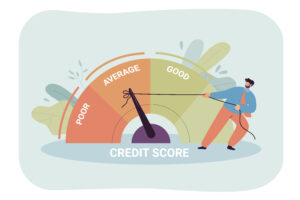Minor KYC & Account Conversion @18: Complete Indian Parent Guide
Minor KYC and account conversion when your child turns 18 is a crucial financial milestone that many Indian parents overlook until it becomes urgent. When your child reaches adulthood, all financial accounts opened in their name as a minor must undergo mandatory conversion to major status following Reserve Bank of India guidelines. This process involves fresh KYC verification document submission and status change across bank accounts mutual funds demat accounts insurance policies and other financial instruments. Many parents face account freezes transaction blocks and compliance issues simply because they were unaware of the conversion timeline and requirements. The transition from minor to major status is not just a formality but a legal necessity that impacts your child’s financial independence and access to their own funds.
Financial independence begins at 18 but only when parents complete the minor to major account conversion process correctly and on time.

Minor KYC & Account Conversion @18 : NRI Minor to Major Conversion
Understanding Minor Account Conversion: Why It Matters
Minor accounts in India are governed by strict RBI regulations that require all financial institutions to convert these accounts to major status once the account holder turns 18. This conversion is mandatory because minors cannot legally enter into binding financial contracts and all accounts operated by them require guardian supervision. Upon turning 18 your child becomes a major in the eyes of law capable of managing their own financial affairs without guardian intervention. The conversion process ensures that all accounts reflect this change in legal status with updated KYC information and operational permissions. Failure to complete this conversion within the stipulated timeframe usually 30 days from the 18th birthday can result in account freezing where no transactions deposits or withdrawals are permitted until the conversion is completed. Many parents discover this requirement only when their child needs to access funds for education expenses or other financial needs leading to unnecessary stress and delays.
The difference between minor and major accounts is not just about age but about legal capacity to manage money independently a right that must be formally recognized through proper conversion.
Step-by-Step Minor to Major Bank Account Conversion Process
The conversion process for bank accounts follows a standardized procedure across most Indian banks though specific requirements may vary slightly between institutions. The first step involves visiting your home branch where the minor account was held along with your child who is now 18 years old. You need to submit a written application requesting conversion of the account from minor to major status which most banks provide as a standard form. The bank will require fresh KYC documents including PAN card Aadhaar card passport-sized photographs and address proof in the child’s name. Additionally the bank will update the account details removing the guardian’s name and issuing new cheque books and debit cards in the child’s name. Some banks like HDFC and ICICI allow conversion using the same account number while others may require opening a new account and transferring the balance. The entire process typically takes 3-7 working days after document submission. It’s crucial to start this process immediately after your child turns 18 as delays can result in temporary account freezing.
Bank account conversion is the foundation of all other financial transitions for your newly adult child making it the first and most important step in the conversion journey.
Required Documents and Common Parent Mistakes in Minor KYC and Account Conversion

Required Documents for Minor to Major Conversion: Complete Checklist
The documentation required for minor to major account conversion is comprehensive and varies slightly depending on the type of financial account. For bank accounts you need self-attested copies of PAN card address proof such as Aadhaar card or passport passport-sized photographs and the account conversion form. For mutual fund accounts additional KYC compliance is required including a fresh KYC form with updated details and proof of identity. Demat accounts require submission of the minor attaining majority form along with updated client master list and in-person verification. PPF accounts need birth certificate PAN card copy cancelled cheque from the new major account and a request letter for status change. Insurance policies require submission of age proof address proof PAN card copy and policy documents. It’s advisable to prepare multiple sets of self-attested documents as different financial institutions may require separate submissions. All documents must have the child’s signature as a major not as a minor which is a common mistake many parents make.
Proper documentation is the bridge between minor and major financial status without which the conversion process cannot move forward regardless of how urgent the need.
Common Parent Mistakes in Minor KYC and Account Conversion
Indian parents often make several critical mistakes during the minor to major conversion process that lead to complications and delays. The most common mistake is missing the 30-day deadline after the child turns 18 resulting in account freezing and transaction blocks. Many parents continue using the minor account for transactions even after the child turns 18 unaware that such transactions may be rejected or flagged. Another frequent error is not updating nominee information across all accounts leaving the minor designation in nominee details which creates legal complications. Parents often forget to convert all types of accounts focusing only on bank accounts while leaving mutual funds demat accounts and insurance policies in minor status. Documentation errors are also common including submitting minor signatures instead of major signatures using outdated address proofs or failing to self-attest documents properly. Many parents don’t realize that each financial institution requires separate conversion procedures leading to partial compliance.
The biggest mistake parents make is treating minor to major conversion as a single event rather than a comprehensive financial transition requiring attention to multiple accounts and institutions.
Timeline and Compliance Requirements: What Parents Must Know
The timeline for minor to major conversion is strict and regulated by RBI guidelines with specific deadlines that parents must follow. Most banks require conversion within 30 days of the child turning 18 after which the account may be partially or fully frozen. For mutual funds the conversion should be completed within 45 days to avoid redemption restrictions. Demat accounts have a 60-day window for conversion after which trading and transfer activities may be suspended. Insurance companies typically allow 90 days for policy conversion but benefits may be delayed until the process is completed. The entire conversion process for all financial accounts should ideally be completed within 3 months of the child turning 18 to ensure uninterrupted access to funds and services. It’s advisable to create a conversion calendar tracking deadlines for each type of account and starting the process at least 2-3 weeks before each deadline. Financial institutions may take 7-15 working days to process conversion requests after receiving complete documentation.
Time is not just a factor but a critical element in minor to major conversion where missing deadlines can result in temporary loss of access to your child’s own money.
Comparison of Minor vs Major Account Features
| Feature | Minor Account | Major Account |
|---|---|---|
| Legal Status | Operated by guardian | Independently operated |
| Transaction Limits | Withdrawal limits apply | No transaction limits |
| Debit Card | Issued after 10-12 years | Immediately available |
| Internet Banking | Limited access | Full access |
| Loan Facility | Not available | Available |
| Nominee | Guardian as nominee | Self or others as nominee |
| Tax Benefits | Clubbed with parent’s income | Individual tax assessment |
| Account Operation | Guardian signature required | Self-signature sufficient |
| Fixed Deposits | Guardian can open/close | Self-operated |
| Cheque Book | Limited or guardian-operated | Personal cheque book |
Pros and Cons of Minor to Major Account Conversion
| Advantages | Disadvantages |
|---|---|
| Financial independence for child | Complex documentation process |
| No more guardian dependency | Multiple institution visits required |
| Access to full banking services | Temporary account freezing possible |
| Eligibility for loans and credit | Tax implications for child |
| Direct control over investments | Learning curve for financial management |
| Improved credit score building | Risk of impulsive financial decisions |
| No transaction limits | Responsibility for financial mistakes |
| Ability to set up own nominees | Potential for financial disputes |
Special Cases: NRI Minor to Major Conversion
For NRI minors turning 18 the conversion process involves additional complexities and requirements. When an NRI minor turns 18 their accounts must be converted from NRI-minor to NRI-major status following FEMA regulations. This requires submission of additional documents including passport copy visa details overseas address proof and NRE/NRO account details. The conversion must be completed within 30 days of turning 18 to avoid account freezing. For demat accounts held by NRI minors the conversion requires opening a new NRI demat account and transferring holdings from the minor account. Mutual funds require fresh KYC compliance as NRI investors with additional documentation such as overseas address proof and FATCA declaration. Bank accounts may need to be converted to NRO accounts if the child continues to reside abroad. The process is more complex than domestic conversions and may require assistance from NRI banking specialists.
NRI minor to major conversion adds international compliance layers to an already complex process requiring careful planning and expert guidance.
Post Office schemes Mutual Fund Demat Account Insurance Policy Minor to Major Conversion

Post Office Schemes and Minor to Major Conversion
Post office savings schemes like PPF NSC and Monthly Income Scheme have specific conversion procedures when the minor turns major. For PPF accounts the conversion requires submission of a request letter along with the child’s PAN card copy birth certificate and cancelled cheque from the major bank account. The account continues with the same number but the status changes from minor to major and all future contributions and withdrawals are treated as major transactions. For National Savings Certificates held in minor names the conversion requires submission of similar documents along with the original certificates for reissue in the major’s name. Monthly Income Scheme accounts require conversion within 30 days of turning 18 with submission of age proof identity proof and address proof. The interest earned after conversion is taxed in the major’s hands rather than being clubbed with parents’ income. Post office conversions typically take 15-20 working days after document submission.
Post office scheme conversions are often overlooked by parents focusing only on bank accounts but they are equally important for complete financial transition.
Mutual Fund Minor to Major Conversion: Complete Process
Mutual fund investments made in minor names require specific conversion procedures when the child turns 18. The first step is to complete fresh KYC for the child as a major investor including submission of KYC form PAN card copy address proof and photograph. This KYC must be registered with KRA agencies before proceeding with conversion. Next you need to submit a minor attaining majority form to each mutual fund company where investments are held along with supporting documents. The form requires details of all folios to be converted and must be signed by the now-major child. Some fund houses allow online submission while others require physical submission to their registrar offices. After conversion the units continue to remain in the child’s name but the status changes from minor to major and all future transactions require the child’s signature. The conversion typically takes 7-10 working days per fund house after document receipt. It’s important to update nomination details for all mutual fund investments after conversion.
Mutual fund conversion is not just about changing status but about establishing your child as an independent investor in the financial system.
Demat Account Conversion: Trading and Investment Access
Demat accounts opened in minor names require conversion to major status when the child turns 18 to continue trading and investment activities. The conversion process varies between brokers but generally involves submission of a minor attaining majority form along with fresh KYC documents. The broker will require in-person verification of the now-major child either through video KYC or physical branch visit. All holdings in the minor demat account are transferred to the new major demat account which may have the same account number or a new one depending on the broker’s policy. The trading account linked to the demat account also requires conversion with submission of income proof if the child wishes to trade in derivatives. After conversion the child can independently operate the demat account buy and sell securities and manage their investment portfolio without guardian intervention. The conversion process typically takes 10-15 working days after complete document submission.
Demat account conversion opens the door to independent investment decisions giving your child control over their financial portfolio and trading activities.
Insurance Policy Minor to Major Conversion: Key Considerations
Insurance policies where the child is either the policyholder or nominee require specific conversion procedures when they turn 18. For policies where the child is the nominee you need to submit age proof address proof and policy documents to the insurance company to update the nominee status to major. If the policy was taken for a minor child and matures after they turn 18 the maturity amount will be paid directly to the child’s bank account after conversion. For child insurance policies where the child is the life insured the policy benefits are paid according to the terms but the claim process requires submission of age proof and major bank account details. Some insurance policies may require medical underwriting again when the child turns major depending on policy terms. It’s important to review all insurance policies where the child is involved and complete the necessary conversions to ensure smooth claim settlement in future.
Insurance conversion is often the most overlooked aspect of minor to major transition but it’s critical for ensuring that policy benefits reach the right person at the right time.
Creating a Conversion Calendar: Parent’s Action Plan
Creating a systematic conversion calendar is essential for parents to ensure all minor to major conversions are completed on time. Start by listing all financial accounts held in your child’s name including bank accounts mutual funds demat accounts insurance policies post office schemes and any other investments. Note the exact date your child turns 18 and work backward to create a timeline for each conversion. Bank accounts should be converted first within the first week after turning 18 as they are needed for other conversions. Mutual fund and demat conversions should follow in the second week. Post office scheme conversions should be completed in the third week. Insurance policy conversions can be done in the fourth week. Prepare all documents in advance including multiple sets of self-attested copies. Schedule appointments with bank branches and financial institutions if required. Keep track of all conversion requests and follow up if delays occur. A well-planned conversion calendar prevents last-minute rushes and ensures smooth transition to major status.
A conversion calendar transforms a complex process into manageable steps ensuring no financial account is left behind in the minor to major transition.
Digital Solutions and Tax Implications of Minor to Major Conversion
Digital Solutions for Minor to Major Conversion
Many financial institutions now offer digital solutions for minor to major conversion making the process more convenient for parents and children. Several banks including HDFC ICICI and SBI allow online submission of conversion requests through their internet banking portals. Mutual fund registrars like CAMS and KARVY provide online forms for minor attaining major that can be submitted with digital signatures. Some brokers offer video KYC for demat account conversion eliminating the need for physical branch visits. The government’s DigiLocker platform can be used to store and share required documents digitally with financial institutions. However certain steps like in-person verification and physical signature on some forms may still require offline processes. It’s important to check with each financial institution about their digital conversion capabilities and prepare accordingly. Digital solutions can significantly reduce the time and effort required for conversion especially when dealing with multiple institutions.
Digital transformation is making minor to major conversion easier but parents must still understand which steps require physical presence and which can be completed online.
Tax Implications of Minor to Major Conversion
The conversion from minor to major status has significant tax implications that parents must understand. When a child turns 18 their income is no longer clubbed with the parents’ income under Section 64 of the Income Tax Act. The child must file their own income tax return if their income exceeds the basic exemption limit. All investments held in minor names continue to belong to the child but the tax treatment changes. Interest income from bank accounts fixed deposits and other investments is now taxed in the child’s hands. Capital gains from mutual funds and stocks are also taxed in the child’s name. The child may be eligible for deductions under Section 80C and other provisions if they make eligible investments. It’s important to obtain a separate PAN card for the child if not already done and update it across all financial institutions. Parents should also consider the tax implications of gifting money to their now-major child as gifts above certain thresholds may have tax consequences.
Tax independence comes with financial independence requiring parents to understand how their child’s income will be treated differently after they turn 18.
Financial Education for Your Newly Adult Child
The minor to major conversion process provides an excellent opportunity to educate your child about personal finance and money management. As your child transitions to major status they need to understand basic banking concepts including how to operate their account independently use internet banking safely and understand transaction statements. They should learn about different investment options available to them as majors including mutual funds stocks fixed deposits and government schemes. It’s important to teach them about tax basics including when they need to file returns what deductions are available and how to maintain proper financial records. Budgeting skills are crucial as they now have independent access to their funds. Parents should also educate their children about the importance of maintaining good credit history and using credit responsibly. This financial education should be practical and hands-on allowing the child to gradually take responsibility for their financial decisions with parental guidance.
Financial education is the most valuable gift parents can give their children during the minor to major transition preparing them for a lifetime of smart money management.
What is the deadline for minor to major account conversion in India?
Most banks require conversion within 30 days of turning 18 after which accounts may be frozen. The exact deadline varies by institution but it’s best to complete conversion within the first month.
Can minor to major conversion be done online?
Many banks allow online submission of conversion requests but some steps like in-person verification may require physical presence. Check with your specific bank about their digital conversion capabilities.
What happens if I miss the conversion deadline?
If you miss the deadline the account may be temporarily frozen preventing transactions. You’ll need to visit the branch with required documents to reactivate and convert the account.
Is PAN card mandatory for minor to major conversion?
Yes PAN card is mandatory for all financial account conversions in India. If your child doesn’t have a PAN card you must apply for one before starting the conversion process.
Can the conversion process be completed by parents alone?
No the child who is now 18 must be present for in-person verification and must sign all documents as a major. Parents can assist but cannot complete the process alone.
What documents are required for mutual fund conversion?
Mutual fund conversion requires fresh KYC form PAN card copy address proof photograph and minor attaining major form for each fund house where investments are held.
How long does the entire conversion process take?
The complete process for all accounts typically takes 1-2 months depending on the number of accounts and institutions involved. Bank conversion takes 3-7 days while other institutions may take longer.
What happens to fixed deposits in minor names?
Fixed deposits in minor names are converted to major status. The FD continues with same terms but premature withdrawal after conversion requires the major’s signature.
Can a major operate their account independently immediately after conversion?
Yes after conversion the major can independently operate their account without guardian intervention including making transactions applying for loans and managing investments.
What are the tax implications after conversion?
After conversion the child’s income is no longer clubbed with parents’ income. They must file their own tax return if income exceeds exemption limit and pay taxes on their earnings.
Disclaimer: This article provides general information about minor KYC and account conversion processes in India. The specific requirements and procedures may vary between financial institutions and change over time. This content should not be considered as financial advice. For personalized guidance regarding your specific situation please consult with a qualified financial advisor. If you need professional assistance with minor to major account conversion or other financial matters please visit our services page at https://ourfinocracy.com/services/ or contact us at https://ourfinocracy.com/contact/ to speak with a certified financial advisor who can provide tailored advice based on your individual needs.
Data Sources:
- Dilzer Consultants – Checklist for children turning into majors
- Zerodha Support – Minor account conversion
- GoDigit – Minor to major account conversion
- Signzy – Minor KYC Compliance Guide
- HDFC Bank – Minor to Major Conversion












